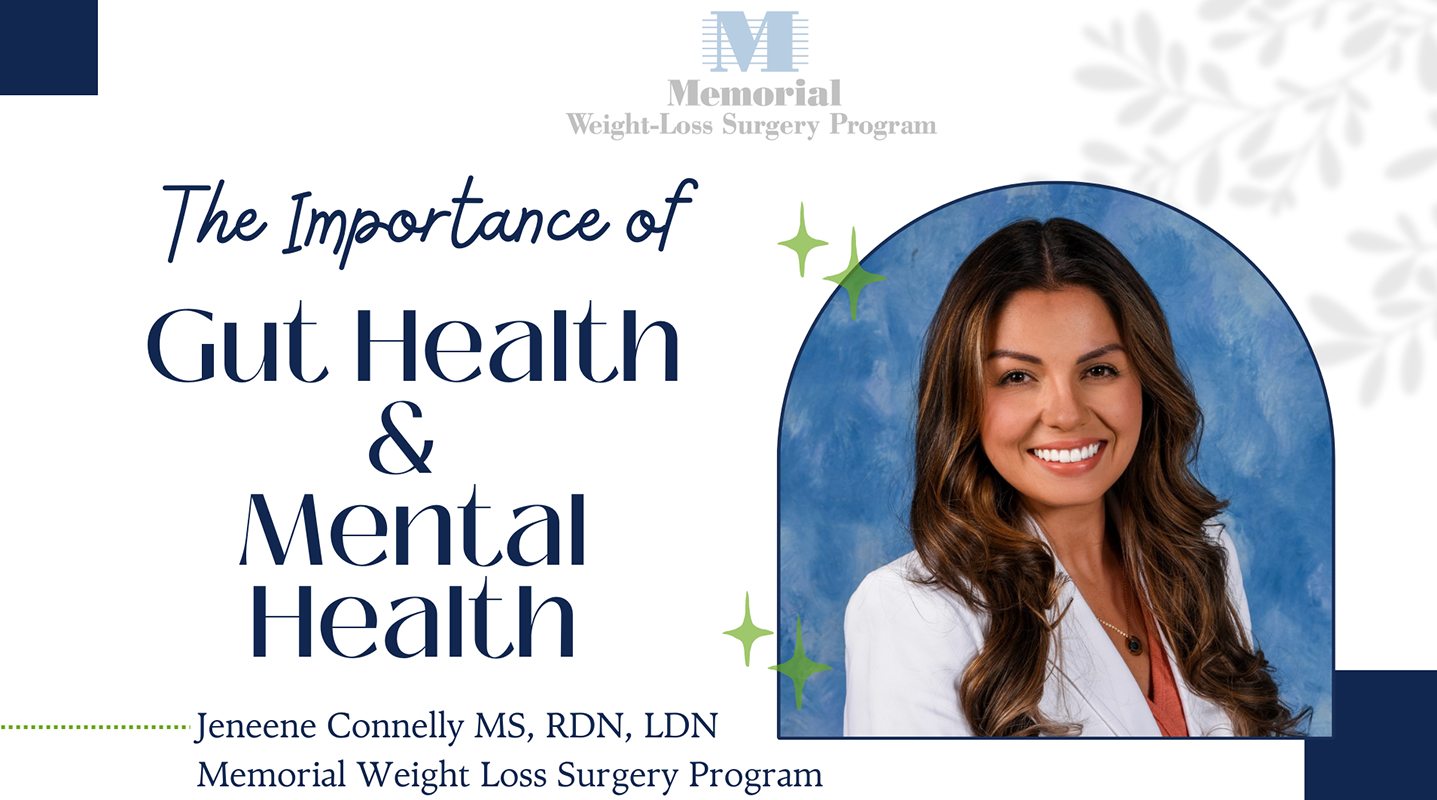How Gut Health Affects Mental Health
August 11, 2022

In this webinar, Jennenne Connelly, MS, RDN, LDN, a registered dietitian with Memorial Weight Loss Surgery Program, talks how our gut health affects our mental health, and what foods and drinks we should consume to improve our gut bacteria.
Key Takeaways
- Gut bacteria (i.e., gut microbiota, gut microbiome, or gut flora) is essential to our overall health and affects our bodily functions.
- Eating foods that contain prebiotics and probiotics can help maintain healthy gut bacteria.
- Prebiotic foods are high-fiber, non-digestible carbohydrates and natural sugars that feed good gut bacteria (e.g., whole grains, bananas, greens).
- Probiotic foods contain live microorganism in your gut that help digest foods and improve "good" gut bacteria (e.g., yogurt, kefir, sauerkraut, kimchi, kombucha, pickles, miso, etc.).
- Prebiotics help probiotics grow and remain in your digestive system.
What is the gut microbiome?
- Consists of 100 trillion cells in the colon or gut
- Codependent on our body
- Digest nutrients
- Promotes gut immunity
Our Gut is the Second Brain
How does our food affect our gut?
- Food influences health of gut microbes
- Certain foods feed bad bacteria
- Decreased diversity in the gut
How does our gut affect our brain?
- Synthesizes neurotransmitters
- Sends chemical messages to the brain
- Regulates sleep, pain, appetite, mood, and behavior
Foods/Drinks That Improve Mental Health
Nutrient dense foods, including:
- Beans
- Fruits
- Vegetables
- Whole grains
- Lean meats
- Eggs
- Nuts
- Seafood
Foods/Drinks That Decrease Mental Health
- Alcohol
- Caffeine
- Candy
- Processed meat
- Fried food
- Refined foods (e.g., cereals, pastries, white bread, rice, pasta)
Common Signs of Poor Gut Health
- Upset stomach
- Unintentional weight changes
- Constant fatigue (tiredness)
- Trouble sleeping
- Skin irritations
- Autoimmune conditions
- Food intolerance or difficulty digesting foods
7 Things to Do to Improve Gut Health
- Lower stress
- Get enough sleep
- Mindful eating
- Stay hydrated
- Change your diet
- Check for food interlaces
- Eat pre- and probiotic foods
Gut Health and Mental Health

